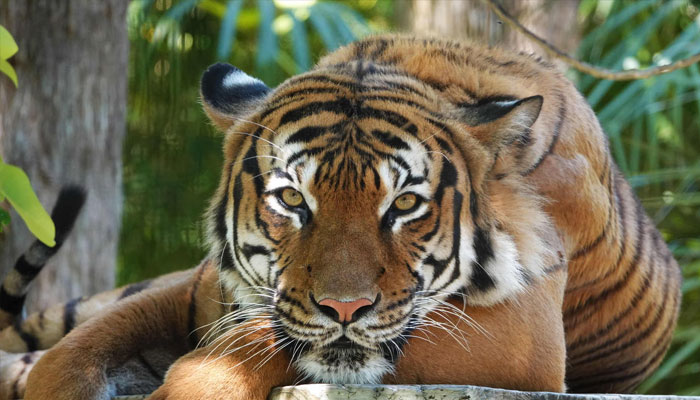Big cats can also tell apart strangers from familiar humans by their voices: study
This capability, previously observed in domesticated cats, challenges stereotype of these majestic creatures as socially inept
February 15, 2024

Contrary to the perception of big cats as aloof and solitary, a new study reveals that tigers, cheetahs, and other exotic felines can distinguish between familiar and unfamiliar human voices, The Guardian reported.
This capability, previously observed in domesticated cats, challenges the stereotype of these majestic creatures as socially inept.
Led by Prof Jennifer Vonk of Oakland University, Michigan, the research focused on big cats, including lions, clouded leopards, snow leopards, and servals, living in captivity. The study involved 24 cats from 10 species, examining their responses to audio recordings of familiar and unfamiliar human voices.
In the experiments, each cat listened to recordings of three unfamiliar humans followed by a familiar voice, such as that of their keeper. The results showed that regardless of sex or rearing method (hand-reared or mother-reared), the cats responded more promptly, intensively, and for a longer duration to familiar human voices than to unfamiliar voices.
The study challenges the assumption that sociality is solely linked to group living and emphasises the importance of recognising individual voices. While the research was conducted in captivity, Prof Vonk suggests that similar results might be found in wild cats exposed regularly to human voices.
Despite its limitations, such as small sample size and captive conditions, the study implies that big cats, even in non-domestic settings, may not be as aloof and indifferent as commonly believed.









